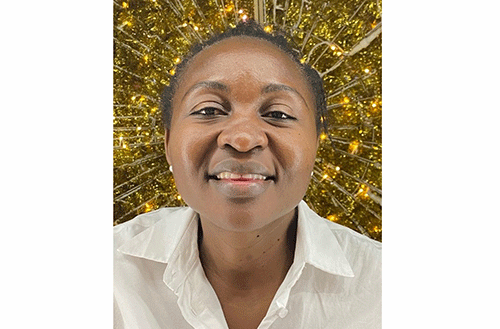Frieda Nanyeni-Kanyemba
In the wake of a profound loss, Namibia collectively mourns the passing of its sitting president, Hage Geingob, marking an unprecedented and sorrowful chapter in the nation’s history.
As the country navigates this sombre period, the constitutional provisions for a peaceful political transition have facilitated the step-up of Nangolo Mbumba, who was also the vice president, as the fourth president of Namibia. Despite the sadness that permeates the nation, the acceptance speech delivered by President Nangolo Mbumba emerges as a pivotal moment, offering insights into the political rhetoric shaping the country’s future. Namibians observed a peaceful transfer of power, although in a sad state of mourning of the third democratically- elected president.
Hage Geingob was one of Namibia’s icons in the liberation struggle. Serving as the first Prime Minister of independent Namibia, he held various positions, culminating in his role as the country’s third president from 21 March 2015 until his passing on 4 February 2024. Therefore, the acceptance speech of the new president provided a unique opportunity to analyse the political rhetoric that shapes our political landscape. The smooth transition to Namibia’s official establishment as a sovereign, secular, democratic and unified country was facilitated despite the potential chaos that could have arisen from Geingob passing on as a sitting president. The principles of democracy, the rule of law and justice for all were adhered to during this process. In his speech, Mbumba, as the incoming fourth president of Namibia, skilfully navigated the complex emotions of a grieving nation. The president, through his words, expressed the collective grief of Namibians to appeal to the audience’s emotions. By acknowledging the pain and sharing in the sorrow, the president effectively connected with the citizens, establishing a bond of shared experiences.
Mbumba also established credibility by paying tribute to the late Geingob. He showed his respect for the democratic office, and the legacy left behind. This was not just a strategic political move, but also a powerful statement of continuity, signalling that the values and principles championed by Geingob will be upheld.
Moreover, the president outlined his vision for the country’s future, and briefly touched on the steps his administration will take to continue the work begun by his predecessor. This vision, grounded in factual and logical reasoning, provided a sense of stability and direction at a time of national uncertainty. The fourth president’s acceptance speech reflected a keen understanding of the power of political rhetoric. It was not just about acceptance of the office, but rather, it was a rallying call to the nation, a message of hope in the face of despair, and an assurance of continuity amidst change.
It will be interesting to see how this rhetoric will be translated into action, although over a limited period of one year. As we continue to mourn our loss, we should also pay attention to the evolving political discourse, for it is in these narratives that we find the direction our nation is heading. As the saying goes, “Rhetoric is the art of ruling the minds of men.”
The acceptance speech served its purpose, providing reassurance at a time of sorrow and projecting a vision of a resilient, united Namibia. The language and rhetoric used reflect the president’s understanding of the importance of communication in leadership. It was a masterclass in political rhetoric, offering valuable insights into the president’s leadership style, and how it might shape Namibia’s future. Mbumba clarified that he will only serve for the remainder of Geingob’s term, as Namibia prepares for the upcoming Presidential and National Assembly elections. Finally, as we mourn collectively as the people of Namibia and during such a period, we pray for “peace that surpasses all human understanding” to continue prevailing (Philippians 4:7).
*Frieda Nanyeni-Kanyemba is director of the IUM Centre for Languages and Communication. She holds a PhD in Rhetorical Presidency from the University of Cape Town. Contact Frieda@ +264812447318/ friedananyeni@icloud.com
The views and opinions expressed in this article do not necessarily reflect those of the employer.


